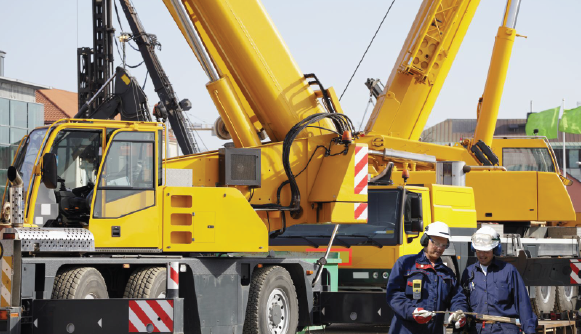
Contractors know that brand-specific specifications should not be used in bid guidelines when it comes to equipment and products. But did you know that many contractors limit their ability to receive equitable bids on projects because their bid documents don’t specify a generic requirement for crane operator or rigger certification?
Contractors who emphasize that their lift crews are Certified Crane Operators or Riggers have a competitive advantage. Crane Institute Certification (CIC) provides crews with certifications that are OSHA recognized by type and capacity for crane operators, a distinction that documents multiple skill levels. CIC also certifies riggers for a basic qualification, at an advanced rigger level, or at the lift director level. CIC is one of four accredited crane operator certification providers, and is recognized by OSHA.
JV Industrial Companies, based in Pasadena, Texas, is an example of one contractor who recognizes this. In March, the turnaround and maintenance specialty contractor issued a memo to all of its safety managers clarifying that the company recognizes and accepts all four accredited certifications for the employment of crane operators and riggers.
“Not only does this expand the company’s bidding options, it helps increase the available labor pool for filling skilled crane operator and rigger positions,” said Debbie Dickinson, Executive Director of Crane Institute Certification (CIC). “This is essential when there is high demand for skilled labor and low supply, as is the current market environment,” she said.
Certifications from accredited organizations must meet the rigorous requirements of a third-party accrediting agency. Written questions and practical exams follow psychometric testing methodologies, designed to eliminate bias and increase the objective measurement of skills and knowledge.
Multiple studies show that construction projects using qualified personnel are completed on time, on budget, and with fewer accidents, more often than projects where under trained employees are working. So don’t restrict your sub-contractors’ workforce by naming a brand-specific certification in your bid guidelines.
When writing bid specifications your objective should be to explain to suppliers what is required, but not be so detailed as to restrict the bidders unnecessarily. The goal is to receive as many bids as possible to improve competition and increase your chances of hiring a sub-contractor that meets your requirements at the best possible price.
Conversely, contractors providing crane operator and rigger labor should know that there are things your customers may value even more than price. “Before you start working on an estimate for a customer, always ask the decision maker what’s important on this job,” says George Hedley, a professional business coach for companies in the construction industry.
Hedley, of Hard Hat Presentations, recently spoke at the March 2014 Convention of the Steel Erectors Association of America. “Facts and figures don’t take into consideration what your customer really wants.” He offers this list of things customers may value more than price:
Ability and experience: Understanding the plans and specifications, reputation for excessive change orders, in-house design and value engineering, and experience in similar type projects.
Customer service: Trust with a delicate customer, service department, flexibility, and response time.
Solid workforce: Properly trained professional field crews, foremen who can make decisions, large enough crews, ability to make the schedule, and quality workmanship.
Image: Great safety record, maintaining clean jobsite, jobsite image and uniforms.
Financial security: Financial strength and bonding capacity, payment schedule and need for cash.
Contractors can make the most of the available labor pool and improve safety and productivity on the job by accepting bids that encourage the use of certified crane operators and riggers. Likewise, sub-contractors can set themselves apart in the bidding process when they demonstrate their ability to deliver a trained and qualified workforce.
About Crane Institute Certification
Crane Institute Certification (CIC), Villa Rica, Ga., is an independent certifying organization providing OSHA recognized, NCCA accredited certifications for mobile crane operators according to type and capacity, as well as rigger and signalperson certifications. CIC is committed to serving construction, utility and power generation, underground construction, manufacturing, and heavy industry by providing efficient and relevant certifications to meet or exceed OSHA requirements and industry best practices.
With CIC you can complete one Practical Exam for up to five certifications. Among the certification programs that CIC has recently released are for operators of Multi-Purpose Equipment, including Digger Derricks, Articulating Boom Cranes, and Service/Mechanics Trucks. Exam questions and tasks are relevant to real-world work sites. Exams are available in English and Spanish. www.cicert.com
Source: Crane and Rigging Hotline